Best budget guitar amps under $500/£500 in 2025: top cheap amps for smaller budgets
We showcase some of the best cheap tube and digital modelling guitar amp heads and combos, for all playing styles
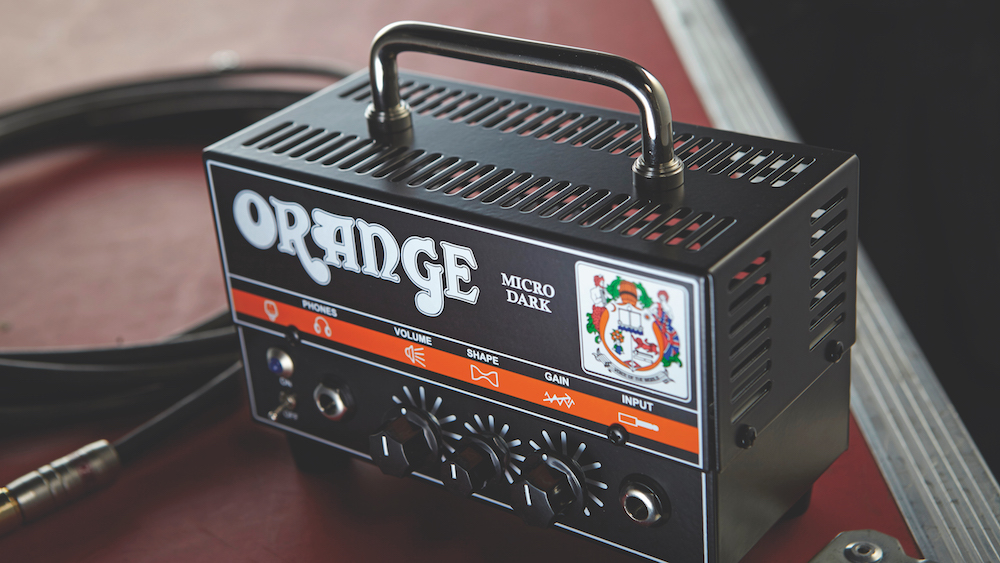
Looking to take a step up from your first amplifier? Or maybe you just want something you can use at home that’s less powerful than your gigging rig. Whichever it is, the best budget guitar amps under $500/£500 are a great place to start looking for a new amp, and you’ll be pleased to know you can get a lot of bang for your buck in this price range with choices from Fender, Boss, Orange, Marshall, and more.
Amplifiers at this level are usually in the goldilocks zone of having enough oomph to deal with small shows, as well as being quiet enough for practice and recording at home. Many feature built-in effects to help you expand upon your tonal palette, and often come with the ability to be used as an audio interface for creating demos at home. So whether you’re looking for a pure tube tone machine, or something digital with all the bells and whistles, we’ve got a great deal that will have you covered.
We've included some in-depth buying advice at the end of this guide, so if you'd like to read more about the best budget guitar amps under $500/£500 head straight there, otherwise keep scrolling to see our top picks.
Best budget guitar amps under $500/£500: Our top picks
It’s topped many a best-of list, and it’s back to claim yet another. We’re talking about the Boss Katana 50 of course, without a doubt the best amp you can get for under $500/£500. Featuring a bunch of great amp models, and a full suite of Boss’ studio-quality effects, this powerhouse has really raised the bar for what an amplifier can be.
Perhaps you’re the kind of player who just likes to plug straight into their amp and do away with any pedals. In that case, you’ll definitely want to take a look at the Supro Delta King 8. Despite only being 1-watt, it’s a tube amp so it’ll be much louder than you expect and when you push it hard, the overdrive sound is absolutely glorious.
Looking for something that's gig-ready? Then look no further than the Orange Super Crush 100 head. With bags of power on tap, loads of headroom for pedals, and some delightful tones on offer, it’s one of the most powerful amplifiers you can buy in this price range.
Best budget guitar amps under $500/£500: Product guide & reviews
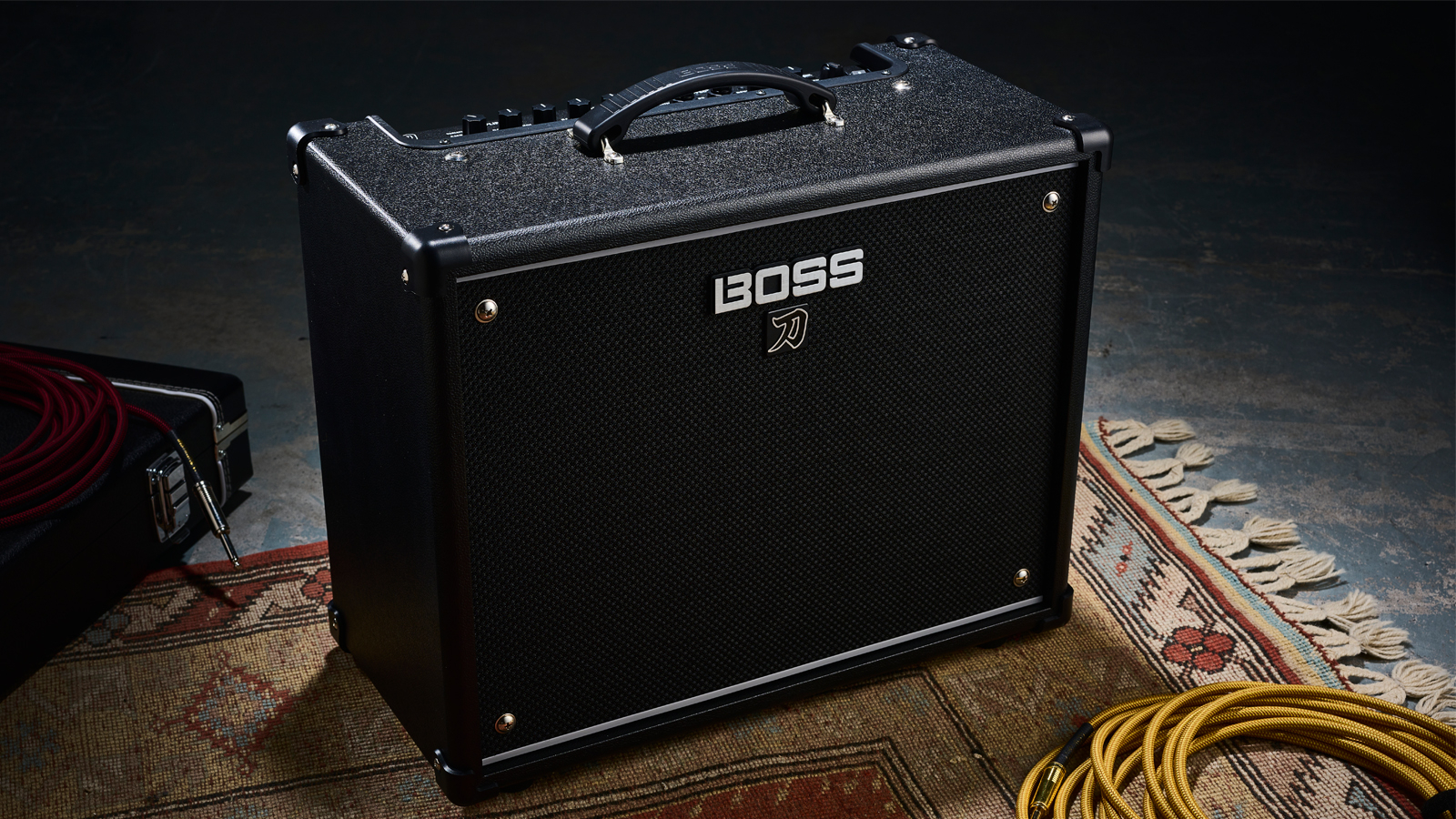
Specifications
Reasons to buy
Reasons to avoid
Boss is an effects legend, but thanks to the digital expertise of parent company Roland, the brand now also has an amp that promises organic, valve-like tones at an impressively low price. It does this by using the same Tube Logic technology employed in the 150-watt Waza Craft head, and other Roland amps. The Katana 50 doesn’t directly borrow any specific amp brands and models. Instead, there are five voices: Acoustic, Clean, Crunch, Lead, and Brown, with five variations. They've been tweaked and updated from the original iteration of the Katana.
You've also got Booster, Mod, FX, Delay, and Reverb sections with three variations in each - so plenty of stuff to keep you going. The Katana, like most other modern amps, also benefits from its switchable power modes, meaning you can get the same gig-ready tones with only 0.5W - something your neighbours will be very happy about.
Start using the Tone Studio editor and the Katana’s edge becomes sharper still, with different effects, chain presets, and assignable control parameters. The Katana may look plain, but its tones are truly exceptional. The Crunch voice is responsive and dynamic, while the Brown solo sound is as good as many USA valve-powered competitors.
The Dual Amp feature adds to the already monumental list of cool features, allowing you to operate two amps from one footswitch. Just configure the other amp how you like it, and then make the most of the onboard stereo effects like reverb, delay, and chorus to create a wide, immersive sound.
Read the full out full Boss Katana 50 Gen 3 review
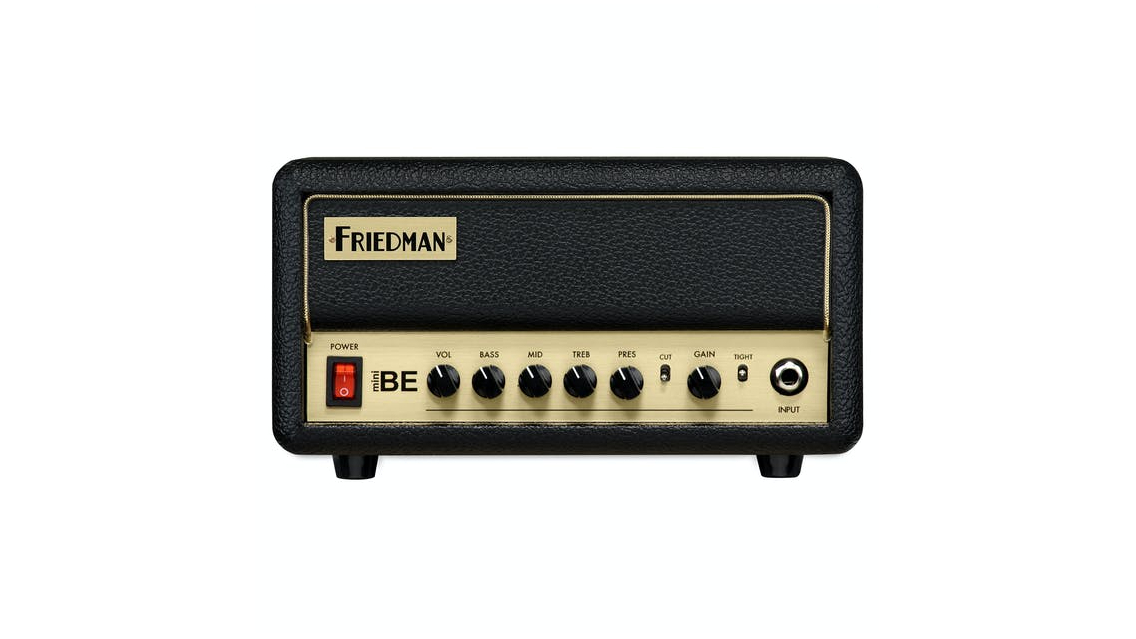
Specifications
Reasons to buy
Reasons to avoid
When hunting for the best cheap guitar amp, you’d be forgiven for avoiding Friedman - their classic tube amps will cost you a significant amount of cash - but with the release of the Friedman BE-Mini, you can now get that iconic sound without breaking the bank.
This solid-state micro head may be a departure from the big, bold valve amps they have become famous for, but we must say it doesn’t compromise on tone. Incorporating the now legendary BE preamp circuit, this pint-sized amp is capable of delivering earth-shaking hard rock tones.
With its 30W of class D power, this amp is perfect for home practice - or relatively quiet rehearsals - and as it only weighs 4Ibs, it’s super portable, too!
Read our full Friedman BE-Mini Head review
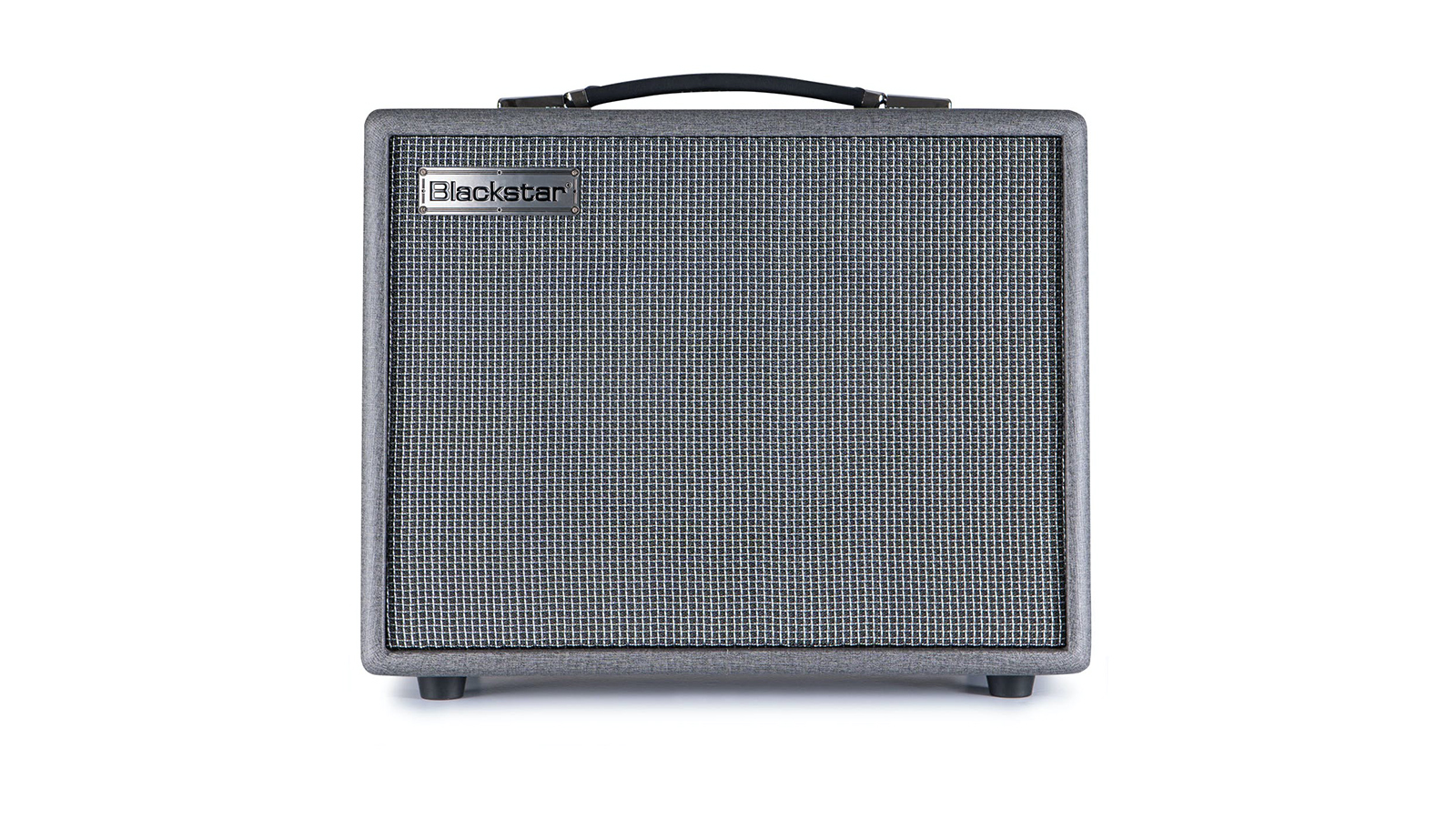
3. Blackstar Silverline Standard
Our expert review:
Specifications
Reasons to buy
Reasons to avoid
The Blackstar Silverline series aims to capture the tone, feel, and aesthetic of a range of boutique amps. Building on the success of the ID:TVP range, Blackstar has designed the Silverline range from the ground up, creating digital amps that not only sound like high-end valve amps, but that respond like them too.
The hi-fi sounds on board the Silverline Standard are largely thanks to a powerful SHARC processor. You’ve got six amp styles to choose from, covering cleans, crunch, and high-gain sounds, however, it’s the Response section of the amp where it gets interesting.
You can choose from six different valve types - EL84, 6V6, EL34, KT66, 6L6, and KT88; each lending a slightly different response and tone. Playing around with this and the amp selection can lead to some incredible pairings and allows you to dial in tones that are pretty close to well-known, high-end tube amps.
Add in some great-sounding studio-quality effects and you’ve got an incredibly versatile amp combo.
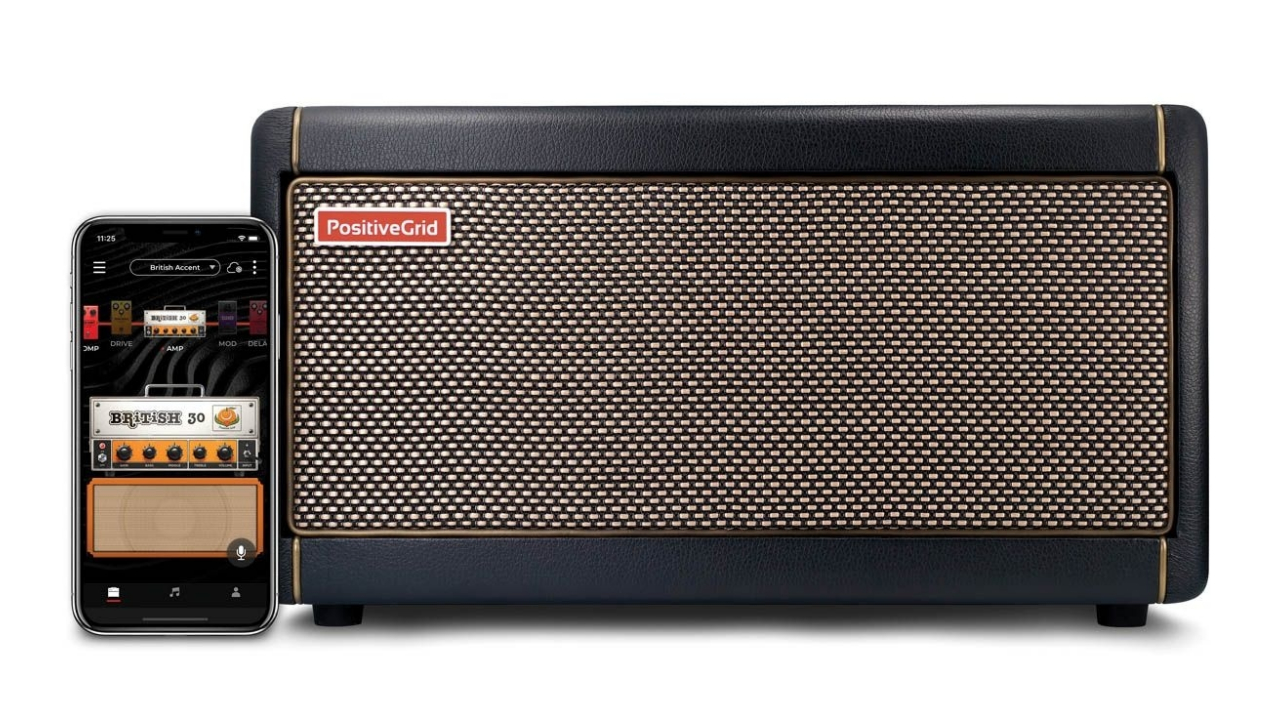
Specifications
Reasons to buy
Reasons to avoid
The Spark is a 40-watt smart practice amp, with 30 amp models from sparkly clean to crushing gain, and 40 varied effects. The Spark puts forward a compelling argument as the ultimate home amp, with 2x4” speakers allowing for stereo effects and app connectivity, which lets you tweak your tones to within an inch of their lives.
It’s packed full of innovative and genuinely useful features too. Stream songs to your amp and, using the Auto Chord feature, the Spark will transpose the songs into chords so you can play along in real-time. Like a sort of guitar karaoke, if you will. Smart Jam is, as the name suggests, pretty smart. Just pick a tempo, play your favorite chord progression or riff, pick a genre and let the Spark do the rest. It’ll create a backing track that you can jam over, so as a practice tool as well as a ridiculously cool feature, it’s pretty invaluable.
With USB connectivity to aid recording and a small compact footprint, as well as all of the above, it’s a pretty useful bit of kit. Positive Grid offers the Spark with a carry bag too - so you’re all ready to go when the world gets back to normal.
Read the full Positive Grid Spark review
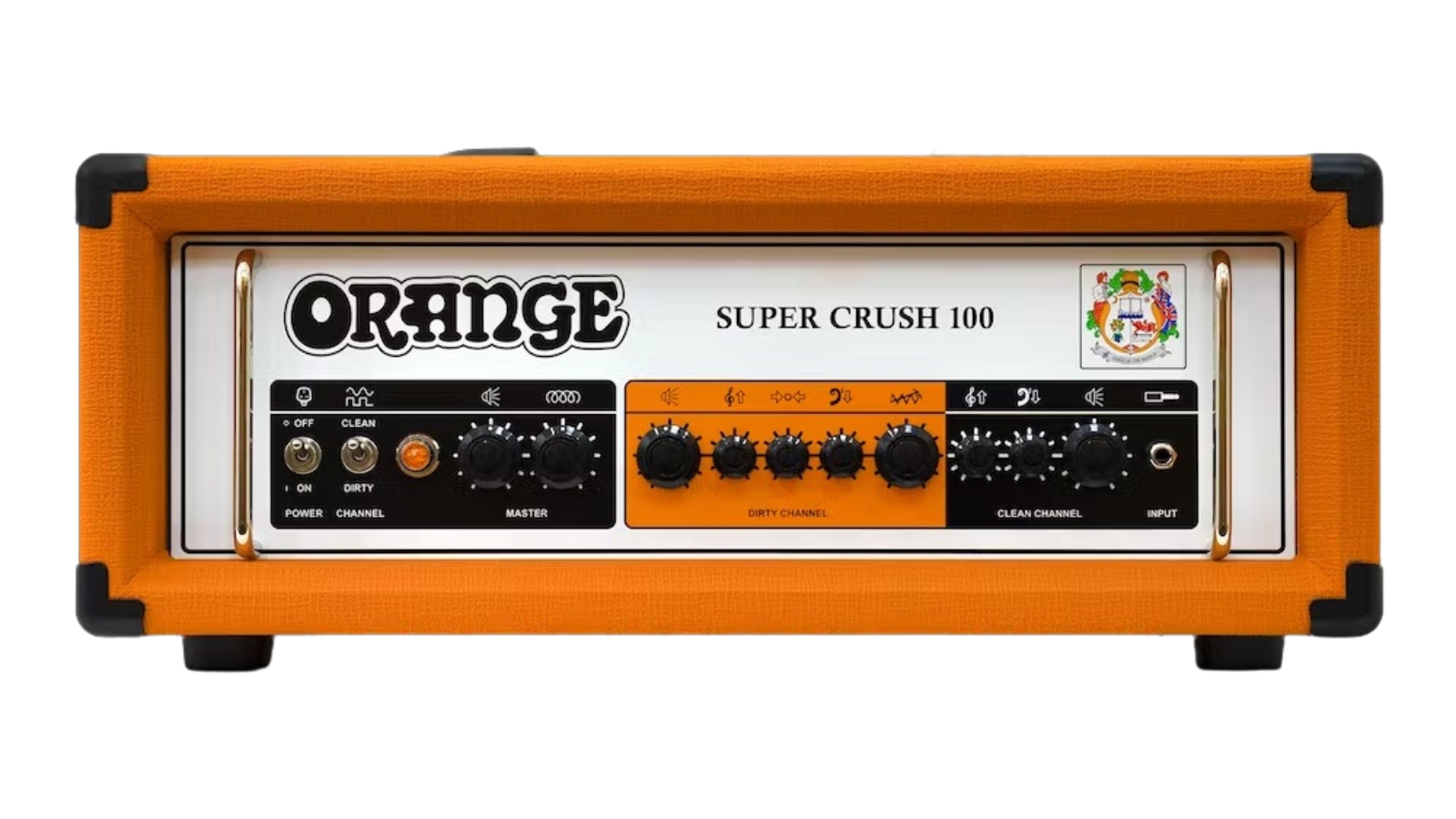
5. Orange Super Crush 100 Head
Our expert review:
Specifications
Reasons to buy
Reasons to avoid
If you’re looking for a bargain that will let you gig, the Orange Super Crush 100 Head is probably the most amount of power you can get in the sub $500/£500 price range. Packing in two channels with reverb, the brilliant amp head is an absolute steal.
The clean channel is the perfect pedal platform, it has its own musical character but the main benefit is that it has so much headroom, letting you drive it really hard. The dirty channel has got a lot of play in it too, going from the edge of breakup right through to full-on saturated distortion.
One of the best features - which will undoubtedly come in handy for gigging - is the CabSim speaker emulation tech. Mimicking the sound of a 2x12 cabinet, it lets you go straight into the PA if you don’t have a cab, or even into your audio interface at home for quiet practice and recording.
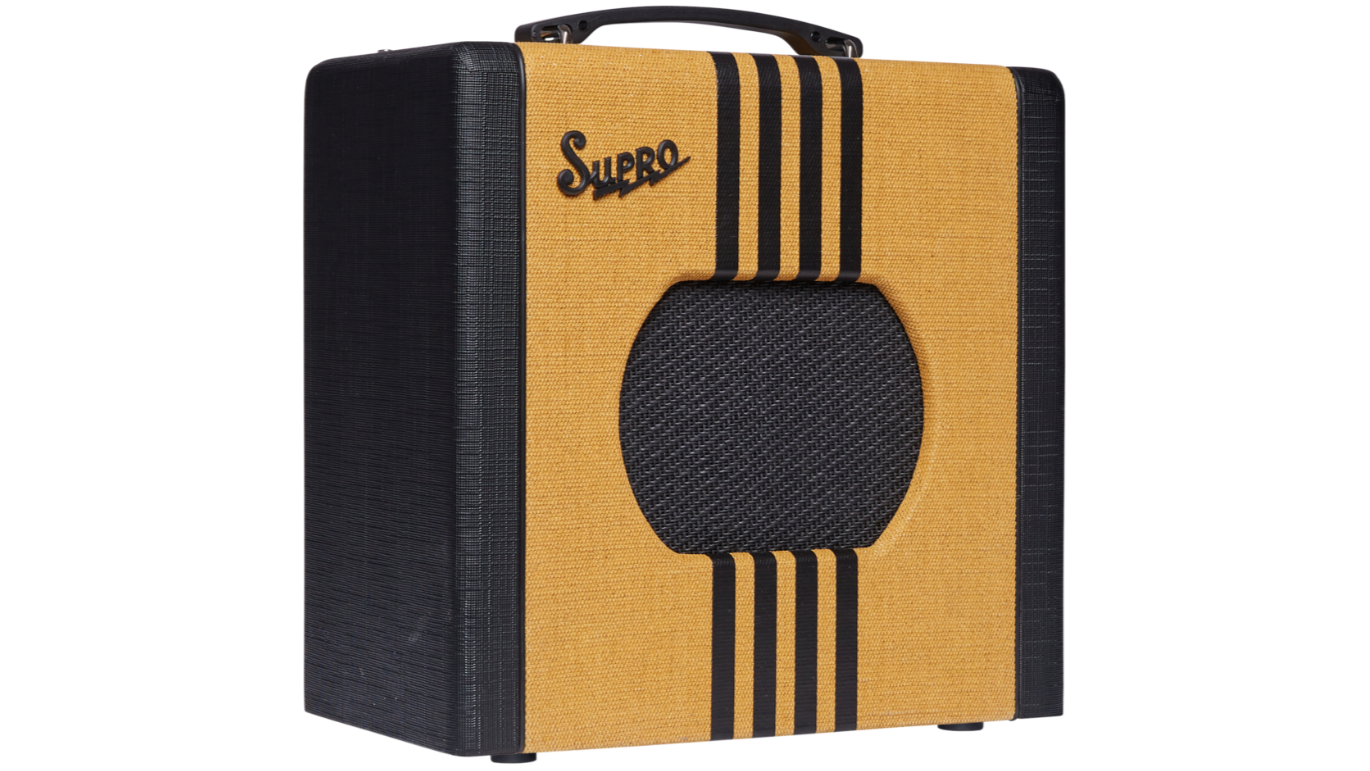
6. Supro Delta King 8
Our expert review:
Specifications
Reasons to buy
Reasons to avoid
The Supro Delta King certainly wears its inspiration on its sleeve. Drawing from the low-wattage valve combo amps of the past, this charming little amplifier perfectly delivers those vintage tones many of us are searching for - and all at a very reasonable price.
This single-channel, 1W amp may not be packed full of features like some of the digital modelers on this list, but it makes up for it in character and tone. The small wattage allows you to really drive the preamp and achieve those bluesy break-up tones at a very manageable volume.
The secret weapon of the Delta King is the line out, located on the rear of the amp. This addition turns the Supro into the perfect recording companion, allowing you to capture all that valve tone in your DAW.
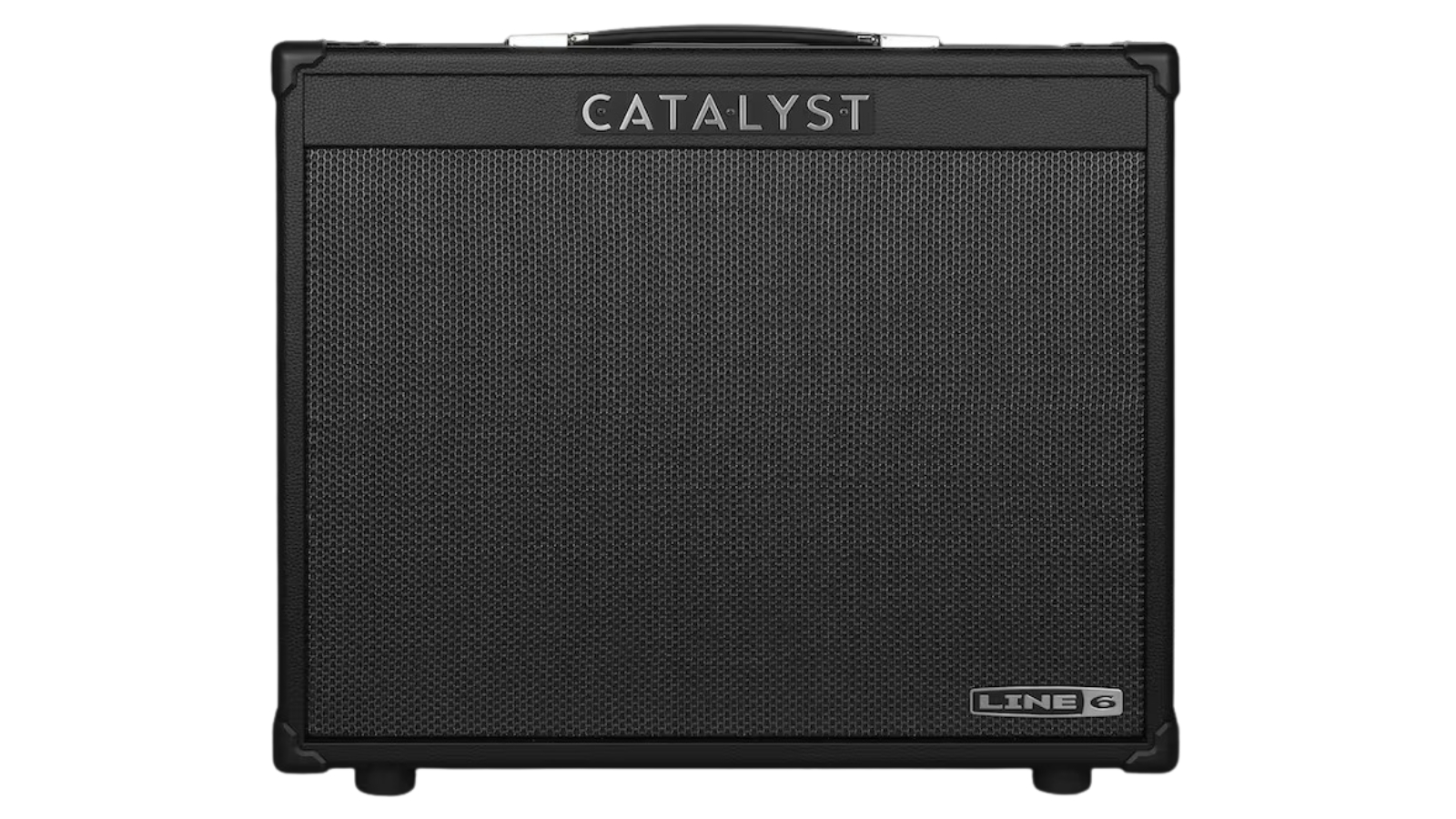
Specifications
Reasons to buy
Reasons to avoid
The Line 6 Catalyst 100 is perfect for the player who needs a lot of different tones in their life. Line 6 is widely regarded as one of the first companies to ever mass produce a modeling amp, so they’ve got a great heritage to build on.
You get six different amplifier models going from vintage clean tones right through to full-on chugging distortion. Despite their reputation for high gain, the majority of these amp tones lean towards the cleaner side of things, and we absolutely loved the ‘Boutique’ amp setting.
Line 6’s HX effects suite is one of the most highly regarded in the world, particularly for its time-based effects and this amp gives you a full complement to use. It’s slightly annoying you can only put two together at the same time, but there’s more than enough on offer to keep you coming back for more.
Read our full Line 6 Catalyst 100 review
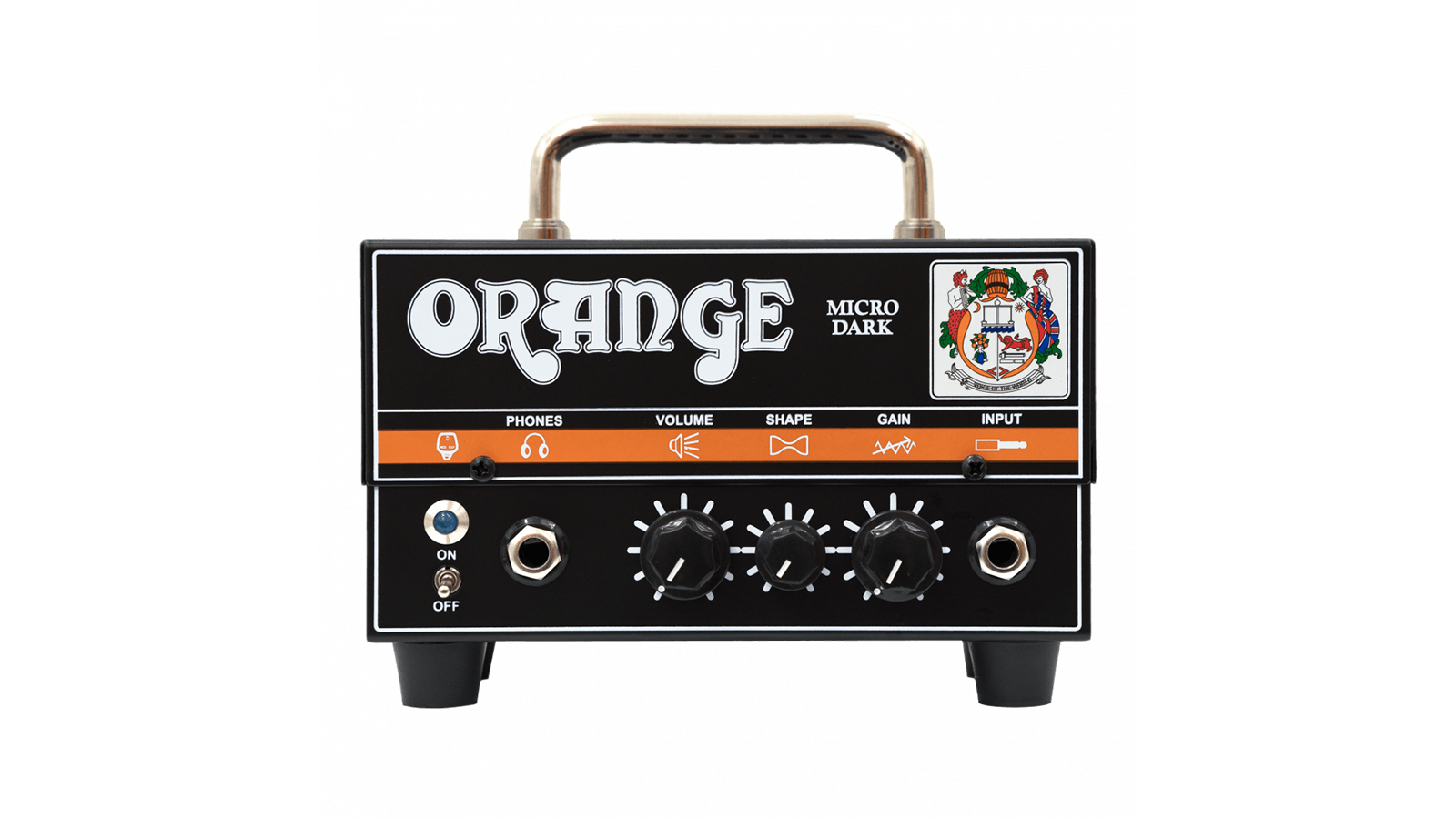
Specifications
Reasons to buy
Reasons to avoid
It may look like a toy, but the Micro Dark is every inch a real amplifier, with a very usable 20-watt solid-state power stage coupled to a preamp that uses a single 12AX7 for authentic valve-overdrive timbres. One of the reasons the Micro Dark is so small is that it relies on an external power supply: a laptop-style brick providing 15 volts.
This aside, everything else is where you'd expect to find it. The Micro Dark is a straightforward single-channel design with controls for gain and volume, together with Orange's very versatile Shape tone control, which boosts mids in one direction and scoops them in the other - perfect for those seeking a quality metal amp. There's also a very usable headphone output that features Orange's authentic CabSim speaker emulation, in addition to a speaker output, and a fully buffered effects loop.
It's astonishing just how much great tone Orange has managed to squeeze into such a small box – with a 4x12 or 2x12, this amp is plenty loud enough for home practice, rehearsals, or even small gigs. At less than the cost of many high-end overdrive pedals, here's a proper amp that's small enough to live in any gig bag, yet powerful enough to handle almost any situation. You can also get the Orange Terror Stamp, which is essentially the Micro Dark, but in a pedal format, and with an added foot-switchable boost.
Read the full Orange Micro Dark review
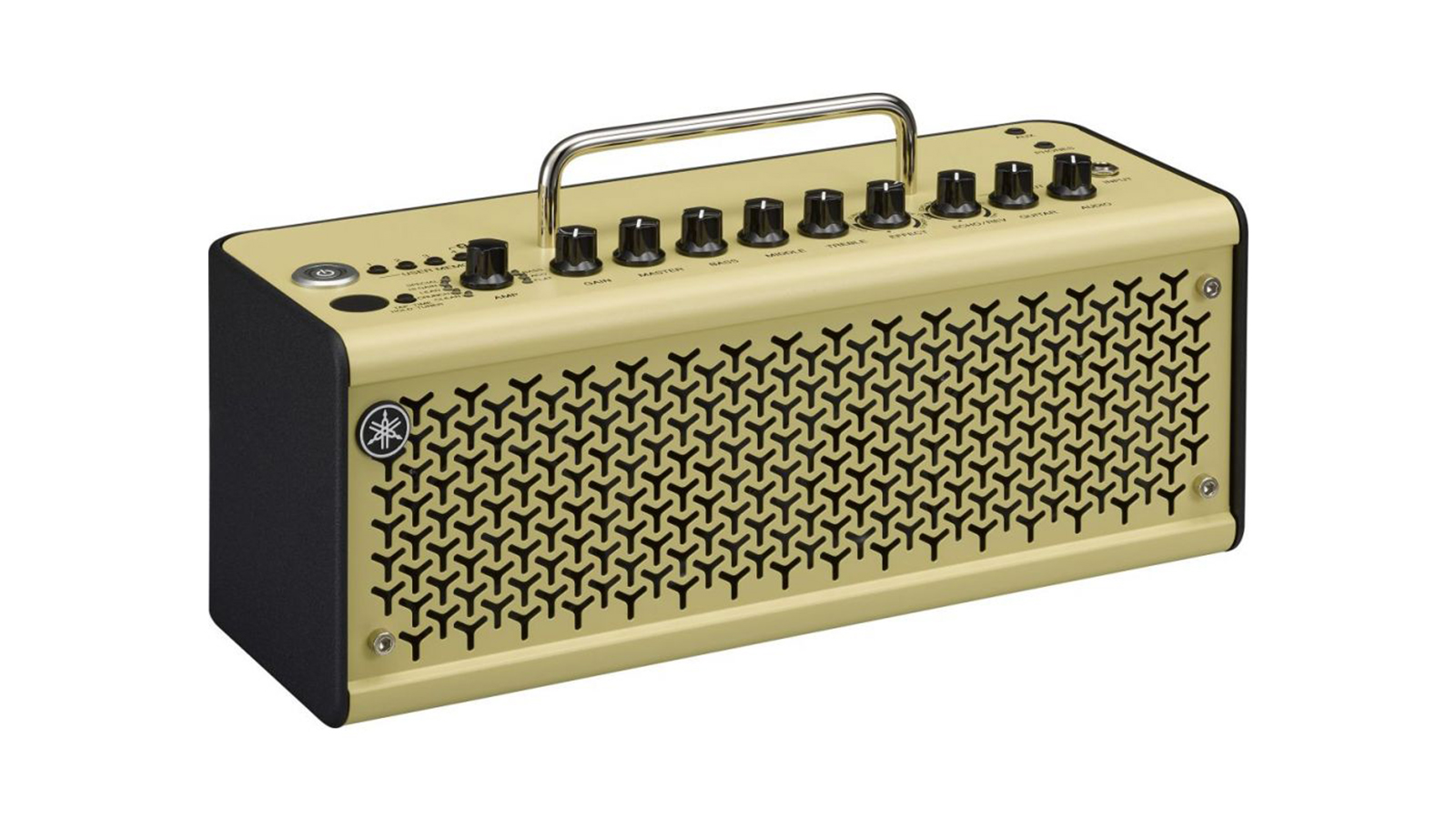
9. Yamaha THR10II
Our expert review:
Specifications
Reasons to buy
Reasons to avoid
Yamaha's THR10II is a desktop amp that's designed to look good, be used at low volumes, play your music library, and enable direct recording to your DAW via USB. It's an impressive feature set. Under the hood, the THR unit uses Yamaha's Virtual Circuit Modelling (VCM) technology for core sound generation, with the control response designed to mimic the 'real thing' – valve amps. Unlike its last iteration, the THR10II now features Bluetooth connectivity allowing you to stream your music wirelessly, and control your amp settings from your smart device.
In this instance, the five amp models offer a range of Fender, Vox, Marshall, and Boogie-style benchmark sounds, as well as bass, acoustic and flat response channels. These amps have been designed to sound good and retain dynamics without sounding overly processed, whatever the volume level and Yamaha has certainly achieved that.
It's refreshing to play through an amp that doesn't sound worse when you turn it down, and that's what makes this one of our favorite practice amps for use at home.
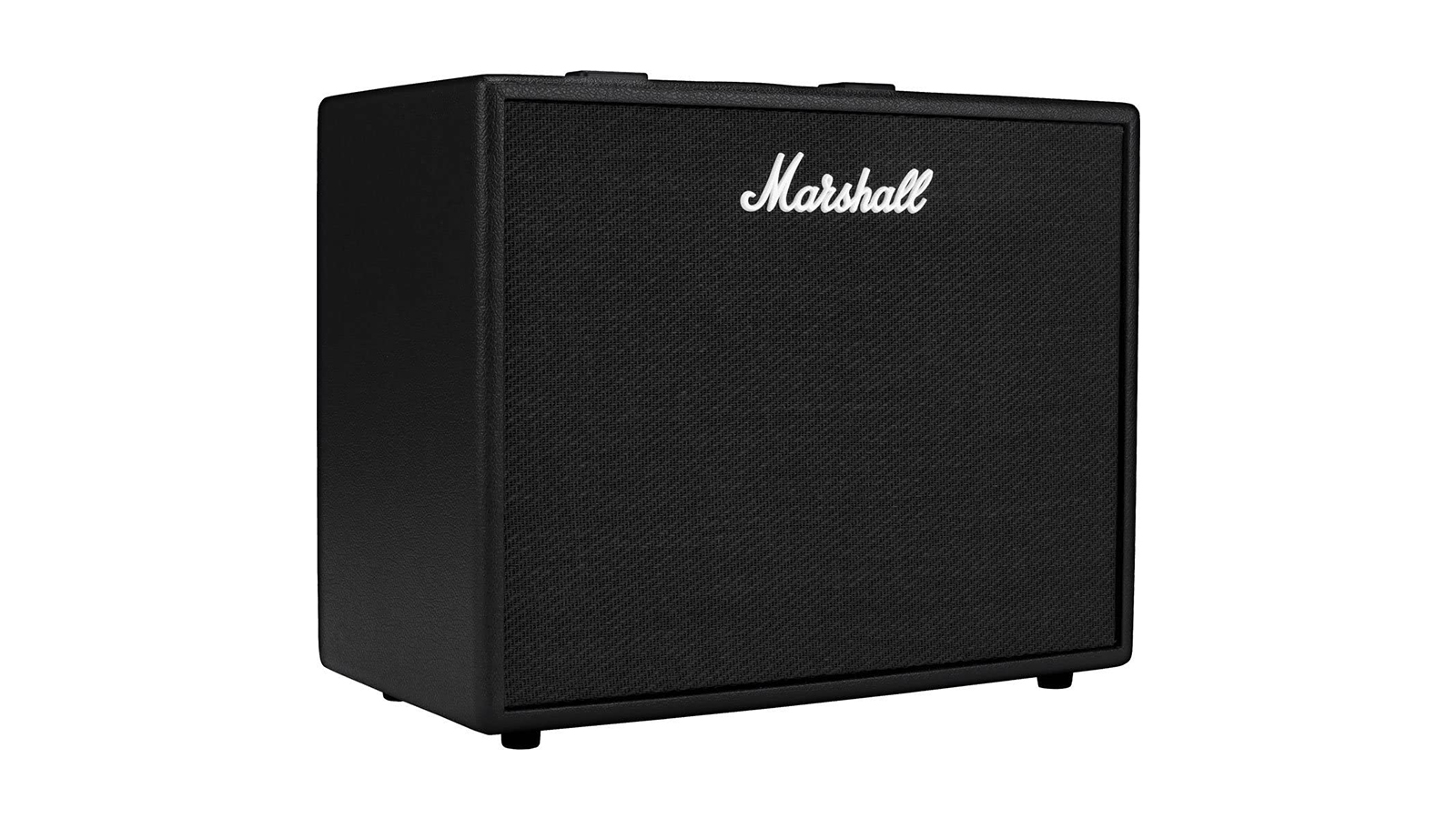
Specifications
Reasons to buy
Reasons to avoid
For the CODE, Marshall developed a range of modelled preamps, power amps and speaker cabinets in collaboration with software plugin supremo Softube, calling the result MST (Marshall-Softube). There's plenty of choices, too: the CODE50 comes loaded with 14 MST preamps, four MST power amps and eight MST speaker cabinets – these cover every classic Marshall tone from the past 50 years.
It all compares favourably with amp modelling combos from the likes of Line 6 and Blackstar. Coupled with this mouth-watering choice of tone, 24 effects cover practically all vintage and modern needs, together with studio-quality reverbs.
Editing is done either from the front panel or Bluetooth, using Marshall's Gateway interface app, which updates settings in real-time. Other clever features include a USB interface, used for updating firmware and recording to your PC, and there's also a built-in guitar tuner, mp3 player input and studio headphones socket.
The tones are at least as good as the competition, and although streaming music into the amp via Gateway or USB sounds okay, you face the limitation that the amp speakers are for guitar, not full-range hi-fi.
Read the full Marshall CODE50 review
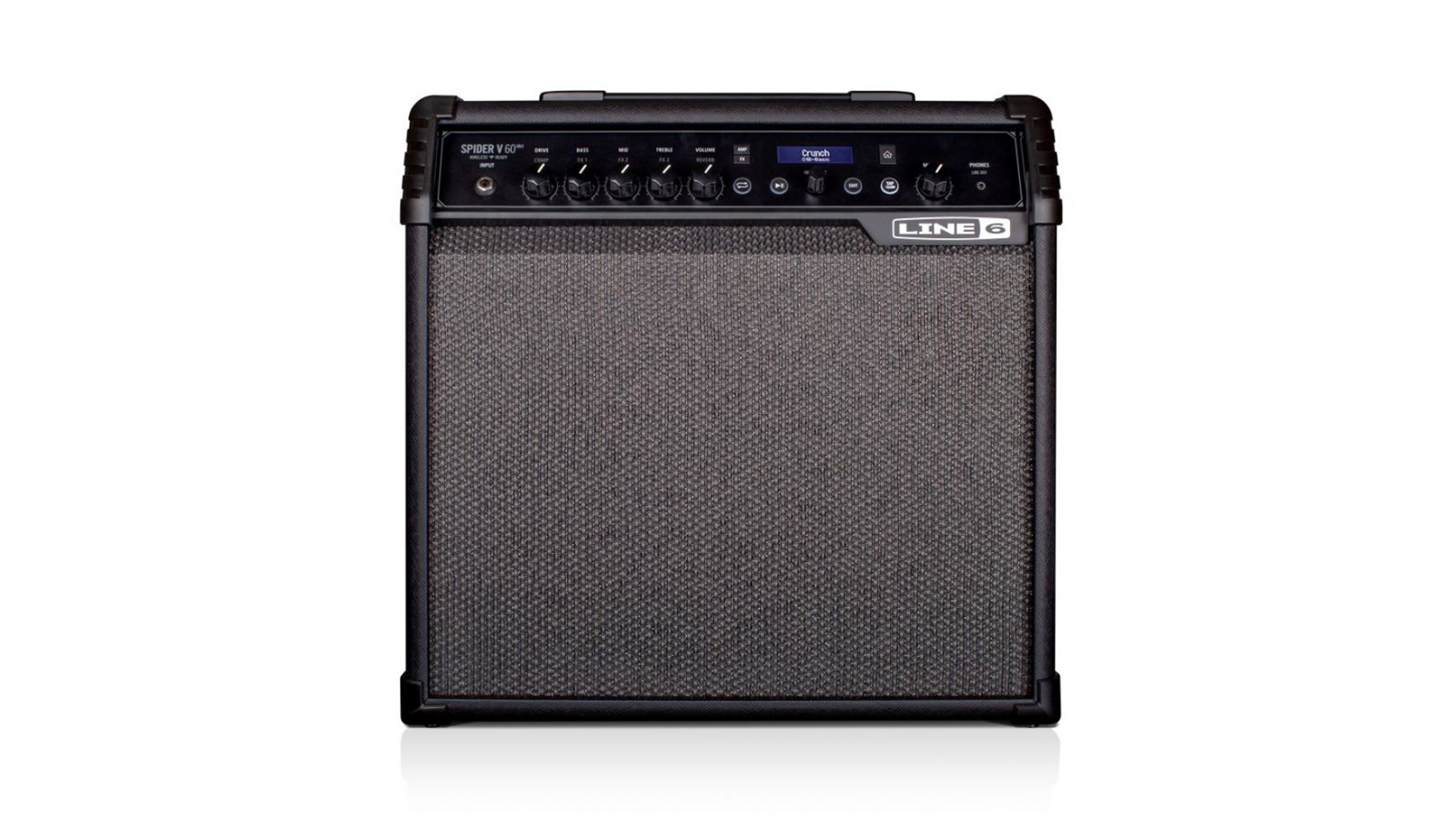
11. Line 6 Spider V 60 MKII
Our expert review:
Specifications
Reasons to buy
Reasons to avoid
This latest update to Line 6's best-selling budget practice amp series features over 200 high-quality amp, effects, and cab models, with over 100 presets, together with a built-in tuner, metronome, and even 19 real drum loops to jam along to. As if that wasn't already enough, there are Android and iOS apps and a built-in receiver for Line 6's Relay guitar wireless systems, not to mention an aux in – and a USB out that will let you record to a PC using the bundled Cubase LE software, or to your iPad or mobile phone.
The Spider V's controls are intuitive, although the display is a little on the small side. The updated sounds are excellent; the new full-range speaker system means better quality at low volume and more balance at higher volume levels, and not just for electric guitars – your acoustic will sound just as good, too.
The new Spider V range represents great fun for guitarists at all levels – the new and improved amp models are highly playable and represent a significant advance over the competition, while the built-in looper, metronome, and drum loops make this a fantastic amp.
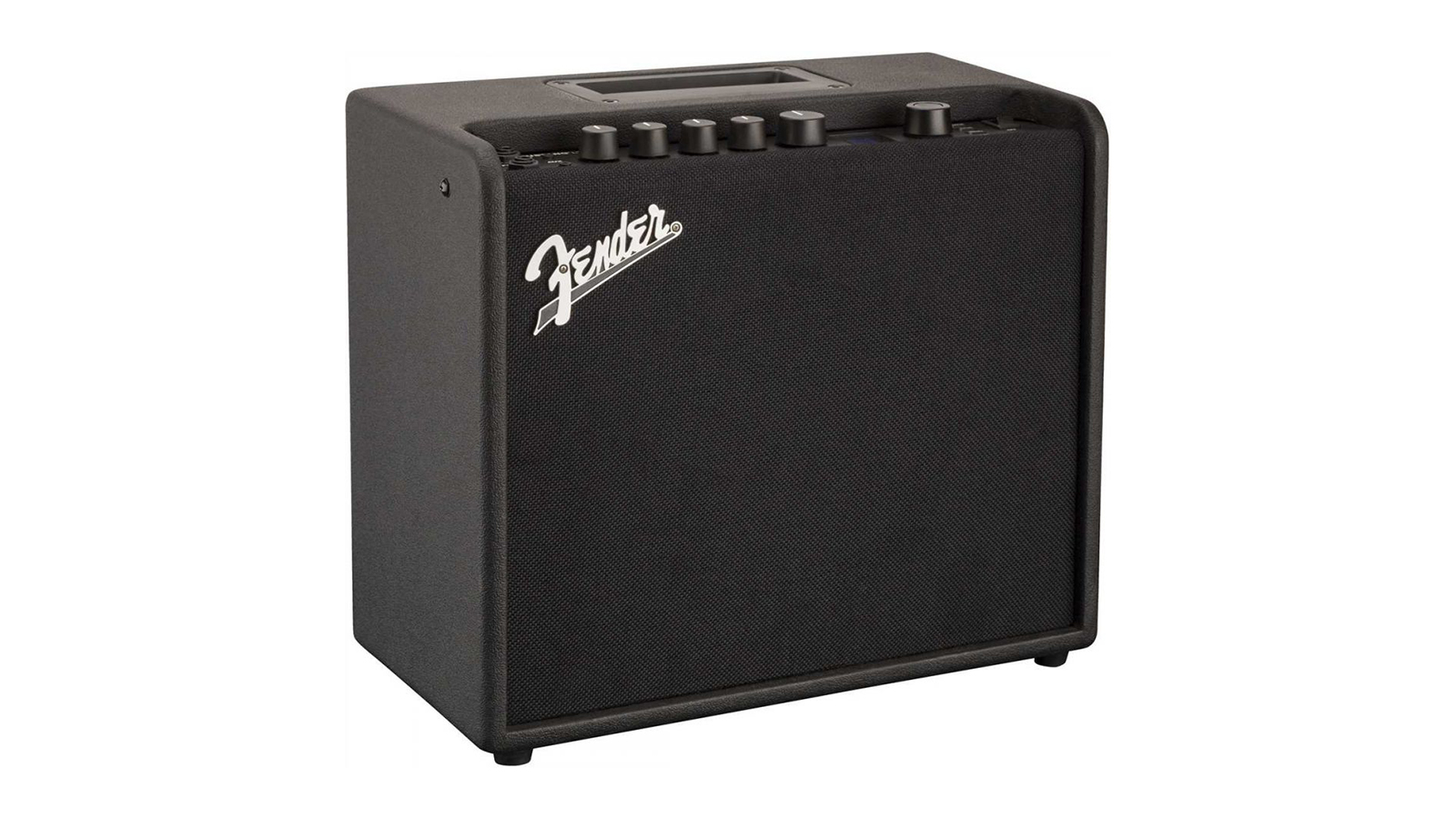
Specifications
Reasons to buy
Reasons to avoid
The Fender Mustang LT25 is a compact, digital modeling practice amp, fitted with a single 8” speaker. There’s a wide range of sounds on board, and they’re really impressive (particularly the clean tones), with 20 amp models to choose from.
As you might expect, they’re mostly inspired by classic Fenders from the tweed and blackface eras, but there’s a fair smattering of British sounds as well, together with dozens of delays, modulation, stompbox, and reverb effects. It’s also got 30 presets built in covering any genre you can think of!
All the sounds within the amp are navigated via a small LCD screen, so there’s quite a bit of page shifting, but it’s not too tedious as the interface is generally well organized, and overall, it’s an easy amp to use. The Mustang LT25 has 25 watts of power, so there’s plenty of volume for home practicing, recording, and jamming with friends, though you might struggle when it comes to gigging or playing with a drummer.
The design is well thought-out and perfectly executed; aside from some fizziness with some high-gain models, it’s hard to put a finger on anything that’s less than excellent
Read the full Fender Mustang LT25 review
Best budget guitar amps under $500/£500: Buying advice
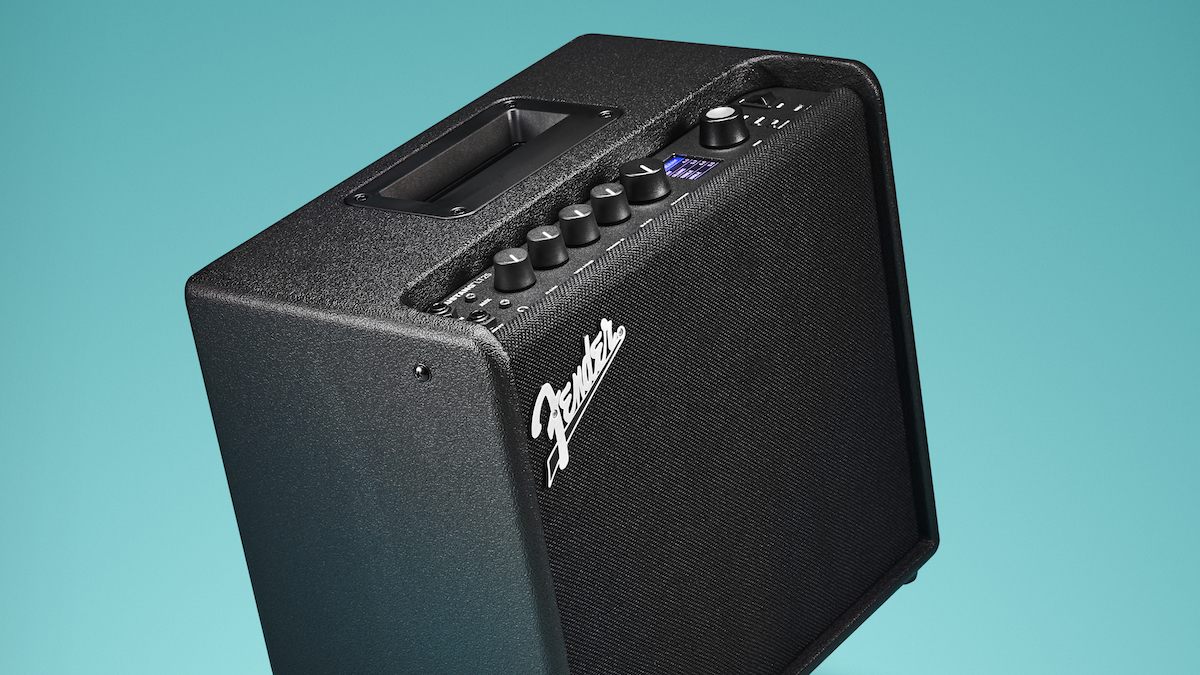
What size amp do I need?
When looking for a new cheap guitar amp, it's worth having an idea of what you want to do with it. For example, if you require an amp for home practice - be sure to check our best practice amps guide - then you'll want to ensure you go for a low wattage option, as this will mean you get the most tone out of the amp at an appropriate volume.
If you want to drive your valve amp at home and achieve those thick, saturated gain sounds, you're best going for a 1 - 5 watt amp, as the reduced headroom will allow you to really push the tubes. On the other hand, if you want the cleanest sound possible, then you'll want to grab a higher wattage amplifier with more headroom.
For the gigging players, you want to ensure whichever amp you go for has enough power to at least be heard over the drummer. As you can always mic it up or use a line out - if it has one - to let the PA do all the heavy lifting for filling the venue. Again though, think about the headroom of the amplifier. You don't want to max out the headroom just getting it loud enough to get over the drummer, as you'll have no more left in the tank when you step on that boost pedal!
What is a digital modeling amp?
The main purpose of a digital modelling amp is to recreate the sounds of many iconic amps in one box. They allow you to dial in Fender-style cleans, Marshall-esque crunch, Boogie-inspired saturation, and everything else in between!
Most modelling amps will have a range of effects onboard, too, so you’ve got plenty of different sounds on-demand to experiment with. This is also great if you’re playing live - you can simply take one amp to a gig to do it all. However, some of the cheaper digital modellers can fall short when playing at higher volumes, as distorted sounds sometimes lose definition.
What is a tube amp?
A tube amp uses vacuum tubes to amplify the electric signals, and when pushed, they create the very natural sounding overdrive guitar players crave.
As a result, tube - or valve - amps sound great when they’re turned up. Cranking the volume helps work the tubes harder, producing a slightly sweeter, more musical sound with more natural harmonics. It’s worth noting that modelling amps are usually trying to replicate the sound of a tube amp - but these are the real deal.
The payoff is that tube amps tend to be more expensive and more delicate. Turning up the volume isn’t always practical either - though many tube amps allow you to switch down the wattage for this very reason
Should I go for a combo or head?
The truth is, there is no right or wrong answer here - go for the option that makes sense to you.
Some players like the convenience of an all-in-one combo, as there are fewer things to deal with. That said, some combos can be heavy and unwieldy - not great if you need to carry it to rehearsals or gigs.
Other players opt to go down the head and cab route, as this not only allows them to drastically change their tone by switching out one of the elements, but if the venue or rehearsal room already has cabinets in place, you only need to carry the head along.
Just remember that your guitar may be the physical connection between you and the music you create, but your amp is what gives it a voice, so choosing the right one for you is essential. So take your time, think about your options and try a few out!
Can I get a budget guitar amp with an effects loop?
Short answer - yes, you can! An effects loop is a great way to get the most out of your time-based effects and quite a few of the guitar amps on our list have one. If you’ve never used one before, it allows you to place your effects after the pre-amp stage but before the power-amp stage of your amplifier.
The reason you would do this is twofold. First of all, if you get your drive sound from your amplifier itself, then you’ll potentially be muddying up your reverb, delays, and modulation pedals with a distorted signal. This means they won’t sound as crisp and clear as they potentially could. To avoid this, an effects loop lets you place it after the part of your amplifier that creates the distorted sound.
Secondly, even if you get your drive sound from pedals and run it into a clean amplifier tone, putting loads of pedals into the front of your amplifier can also result in a muddy sound, increasing the workload upon your preamp.
To avoid this you can use the preamp to separate your pedalboard into two halves, having your drive, boost, compression, and pitch shifters go before the preamp, whilst the delay, reverb, and modulation effects go after.
What’s the best budget guitar amp for metal?
If you’re looking for high-gain metal sounds on a budget, we’d recommend one of the modeling amps on this list for tight, modern tones. Something like the Boss Katana 100 MKII or the Line 6 Catalyst 100 will definitely do the job there.
If you want tube tones then unfortunately you’re unlikely to find them at this price point - unless a retailer is doing some hefty discounts the majority of high-gain tube amps are out of reach here. If you’re willing to spend a bit more, however, you can definitely find some good deals out there. Our best guitar amps under 1000 have some great high-gain, tube choices for you.
Find out more about how we test music gear and services at MusicRadar.
Ways to save more money on a budget guitar amp
MusicRadar's got your back
If you are looking to get the best deal possible on a new amplifier - or any piece of musical equipment for that matter - it pays to shop at particular times of the year. Both Black Friday and Amazon Prime Day offer fantastic opportunities to bag a bargain, with many retailers dramatically slashing the prices of well-known brands. Our Black Friday music deals hub and Prime Day music deals hub are the places to go to find our specially curated lists of the best deals around.
Buying end-of-line amps is also a great way to ensure you get a deal. Manufacturers release updated versions of popular amplifiers all the time, and this usually means retailers are forced to sell the previous generation at a discount to clear space for the shiny new models. So keep an eye out on the latest gear being released to see if you can pick up an older variant for a little less.
Of course, you can also go down the second-hand route, but we only recommend doing this if you know what you are doing. Many components inside an amp can go wrong, so you must thoroughly inspect the unit before purchasing, as you won't have a warranty if something goes wrong.
Related buyer's guides
- Smaller budget? Try one of the best guitar amps under $300/£300
- Explore the best guitar amps for all budgets
- Practice more with the best guitar amp headphones
- The best electric guitars to suit all budgets
- Best guitar cables: top guitar leads and patch cables
- Best guitar amps under $/£1,000: top heads and combos
- Dive deep with the best baritone guitars
- The best electric guitars for beginners: start playing today
- Check out these gifts for guitarists
- The best guitars for beginners: entry-level acoustics and electrics
Get the MusicRadar Newsletter
Want all the hottest music and gear news, reviews, deals, features and more, direct to your inbox? Sign up here.
Chris Corfield is a journalist with over 12 years of experience writing for some of the music world's biggest brands including Orange Amplification, MusicRadar, Guitar World, Total Guitar and Dawsons Music. Chris loves getting nerdy about everything from guitar and bass gear, to synths, microphones, DJ gear and music production hardware.
- Daryl RobertsonSenior Deals Writer
- Richard Blenkinsop
- Matt McCrackenJunior Deals Writer
“Its mission is simple: unleash the power of any amplifier or line-level source without compromise”: Two Notes promises a “watershed” in tube amp control with the Torpedo Reload II
“A pedal that sings with harmonic richness and blooming touch response”: Tone King offers up boutique tube amp tones for your pedalboard with the Imperial Preamp
